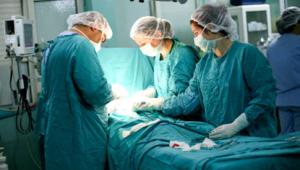By David Williams
22 February 2010
MPs are calling on the government to stop funding homeopathy, arguing that the treatments are unreliable and have no greater clinical use than placebos.
The Commons science and technology select committee released its report, Evidence check 2: homeopathy, today.
The study concludes that the Medicines and Healthcare Products Regulatory Agency should no longer license homeopathic products, and that makers should not be allowed to make claims on effectiveness that they have no evidence to back up.
There is a ‘mismatch’ between evidence and policy, the MPs found, with the government acknowledging that claims made by homeopaths are ‘scientifically implausible’, yet continuing to fund them.
However, the government was not able to tell the committee how much is spent annually on homeopathy in total. Giving evidence, health services minister Mike O’Brien said £152,000 of the £11bn NHS drugs budget went on homeopathy, but the Society of Homeopaths claimed the government spent £4m on homeopathy every year.
But, the report notes, those figures do not include £20m spent on refurbishing the Royal London Homeopathic Hospital between 2002 and 2005.
It also recommends that the government develop a policy on placebos, the effects of which rely on ‘some degree of patient deception’ and are not consistent with informed patient choice.
Committee chair Phil Willis said: ‘This was a challenging inquiry which provoked strong reactions.
‘It sets an unfortunate precedent for the Department of Health to consider that the existence of a community which believes that homeopathy works is “evidence” enough to continue spending public money on it.’
Homeopathy is a 200-year-old practice, which produces remedies through ‘ultra dilution’ to the point where any active ingredients can no longer be detected. Treatments are mixed using a unique shaking technique known as ‘succussion’.
It is the second report in a series by the committee on the evidence base for government policies. The first covered literacy programmes for young children.
22 February 2010
MPs are calling on the government to stop funding homeopathy, arguing that the treatments are unreliable and have no greater clinical use than placebos.
The Commons science and technology select committee released its report, Evidence check 2: homeopathy, today.
The study concludes that the Medicines and Healthcare Products Regulatory Agency should no longer license homeopathic products, and that makers should not be allowed to make claims on effectiveness that they have no evidence to back up.
There is a ‘mismatch’ between evidence and policy, the MPs found, with the government acknowledging that claims made by homeopaths are ‘scientifically implausible’, yet continuing to fund them.
However, the government was not able to tell the committee how much is spent annually on homeopathy in total. Giving evidence, health services minister Mike O’Brien said £152,000 of the £11bn NHS drugs budget went on homeopathy, but the Society of Homeopaths claimed the government spent £4m on homeopathy every year.
But, the report notes, those figures do not include £20m spent on refurbishing the Royal London Homeopathic Hospital between 2002 and 2005.
It also recommends that the government develop a policy on placebos, the effects of which rely on ‘some degree of patient deception’ and are not consistent with informed patient choice.
Committee chair Phil Willis said: ‘This was a challenging inquiry which provoked strong reactions.
‘It sets an unfortunate precedent for the Department of Health to consider that the existence of a community which believes that homeopathy works is “evidence” enough to continue spending public money on it.’
Homeopathy is a 200-year-old practice, which produces remedies through ‘ultra dilution’ to the point where any active ingredients can no longer be detected. Treatments are mixed using a unique shaking technique known as ‘succussion’.
It is the second report in a series by the committee on the evidence base for government policies. The first covered literacy programmes for young children.



















